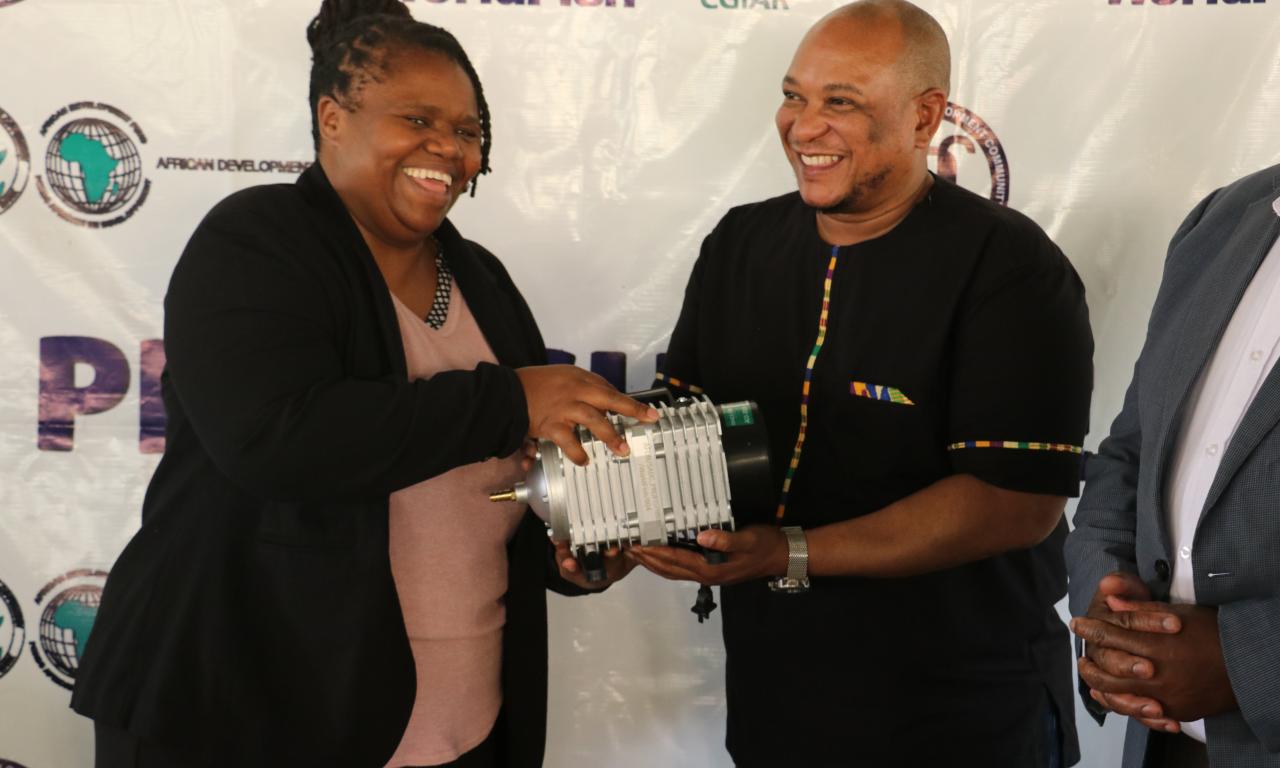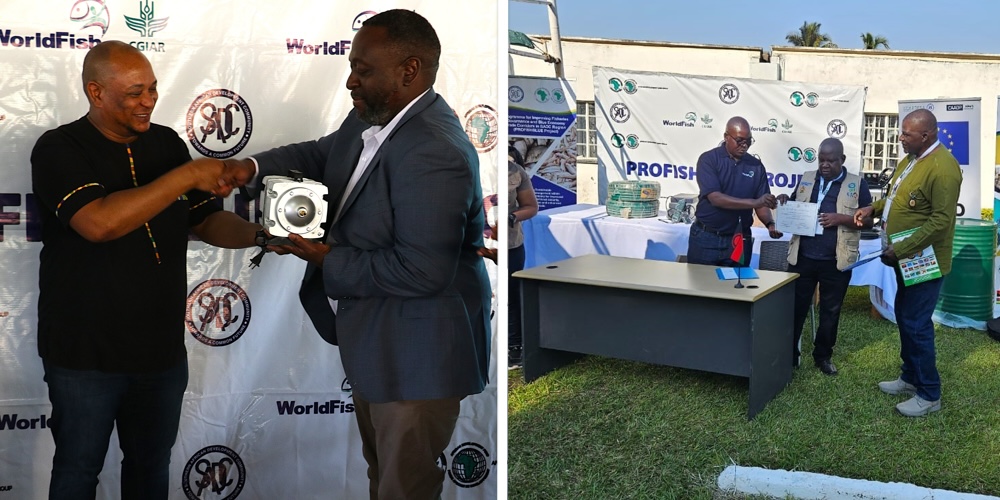
In a significant step towards enhancing the aquaculture sector in Southern Africa, WorldFish has handed over specialized hatchery equipment to Malawi and Zambia, aimed at strengthening the Genetic Improvement Programme (GIP). This marks an important milestone in advancing sustainable aquaculture and addressing the region's growing fish deficit.
At the handover, Dr. Victor Siamudaala, WorldFish’s Country Director for Zambia, Malawi, and the Southern region noted, “the equipment will assist in advancing the GIP to increase the capacity of the aquaculture sector in the nation and create opportunities for employment and enterprises throughout the aquaculture value chain.”
Speaking at the event, Mr. Joseph Magwira Director of Administration, who represented the Principal Secretary in the Ministry of Natural Resources and Climate Change in Malawi, said the hatchery equipment would contribute significantly to research development and bring tangible benefits to the GIP for O.shiranus. He added that the PROFISHBLUE project is supporting Malawi in realizing the goals of the Malawi Development agenda 2063 where the second pillar highlights the necessity of product diversification and value addition in export products and competitiveness.
WorldFish has offered technical support to the Malawian and Zambian GIP’s for Oreochromis shiranus and Oreochromis andersonii respectively over the last couple of years. The programme in Malawi is been implemented through the Malawian government’s Sustainable Fisheries and Aquaculture Watershed Management (SFAD-WM) while for Zambia, its implementation began through the Zambian government’s Zambia Aquaculture Enterprise Development Project (ZAEDP) and has now been taken over by the PROFISHBLUE project since March 2023.
In receiving the equipment, Mr. Joseph Magwira Director of Administration, who represented the Principal Secretary in the Ministry of Natural Resources and Climate Change in Malawi expressed optimism that the hatchery equipment would contribute significantly to research development and bring tangible benefits to the countries GIP. He added that WorldFish’s PROFISHBLUE project is supporting Malawi in realizing the goals of the Malawi Development agenda 2063 which highlights the necessity of product diversification and value addition in export products and competitiveness.
Dr. Netsayi Mudege, senior scientist at WorldFish in Zambia who spoke on behalf of Dr. Victor Siamudaala at the handover in Zambia, said that the project has achieved significant milestones so far.
“Through the ZAEDP project, we have managed to have a genetic improvement of 12.6% of the O.andersonii against the 10% intended target which is a huge achievement. .” Netsayi explained.
Acting Director at the Ministry of Fisheries and Livestock’s Department of Fisheries (DoF) in Zambia Mr. Evans Mutanuka thanked WorldFish for their continued partnership and unwavering support to the development of the aquaculture subsector. He added that the collaboration has been instrumental in the sector's progress and that the ministry is looking forward to building the partnership.
”This is a significant milestone toward advancing aquaculture in Zambia, and a celebration of collaboration, innovation and our collective commitment to aquaculture development and sustainable fisheries in Zambia,” he said.

Promoting Regional Integration
Dr. Motseki Hlatshwayo, Technical Advisor on Fisheries and PROFISHBLUE Project Manager at SADC, speaking on behalf of the SADC executive secretary H.E. Mr. Elias M. Magosi indicated that the handover marked another chapter in the implementation of the project.
“We thank the African Development Bank who have funded this program which has proved to be one of SADC’s flagship programs and also one of the most impactful. This project aligns well with the SADC protocol on fisheries specifically article 13 which talks about how countries can collaborate to improve aquaculture production in the region. With this intervention, we hope to increase the fish production in the region from the current 187 thousand tonnes to offset the regional fish deficit which is almost 2 million tonnes.” he said.
The handing over of this equipment is part of the SADC’s US$ 307,160 support towards the GIP. It is hoped that the intervention will increase fish production from aquaculture in the region and that the work will culminate in a regional initiative to benefit other countries.
The equipment handed over included industrial pressure washers, water tank heaters, electric fountain aerators, air compressors, aeration hoses and submersible and drainage pumps among others.
The handover in Malawi took place at the Domasi Aquaculture Centre (NAC) in Zomba District alongside the Regional GIP write shop held in Blantyre Malawi. In Zambia, the handover occurred at the National Aquaculture Research Development Centre, in Kitwe, Copperbelt province.

